Listen via YouTube video if desired
Transcription (was completed by automated process. Please ignore any speech-to-text errors)
[00:01:43] We’ve got a great special guest with us and I’m going to introduce themselves to you. Would you like to do that quickly?
[00:01:58] I would love to. Hey, everyone. Beatty Carmichael here. And I love being here. I love marketing. I’m passionate about it. I love marketing to generate listings. Been in this business for about 20 years, working with sales agents, generating consumer leads. Start working in the real estate world. 2012, we start getting tremendous results with our clients, helping them earn as much as one hundred thousand dollars within six months to a year. And geographic farming using some things we’ve done. And then over the years started work on additional things to help them win more of the listings that we’re identifying for them.
[00:02:38] And that brings us real quickly today on what we do and in working with personal list and past clients and sphere of influence.
[00:02:46] That’s great. And what would you like to put me into? Juicy news.
[00:02:54] Robert Newman, founder of Bandari and the. That that that should be enough for the moment. You’re.
[00:03:02] And I’m the founder. Roy, we provide a platform for you to lead. We’ve been using Facebook to get new leads.
[00:03:13] So this show, folks, we’re going to be discussing how to build a really powerful, effective personal form and how the techniques and the way you build up a relatively small group of referrals but have a really powerful referral engine.
[00:03:35] So that’s what we agree, hopefully. Right.
[00:03:41] So maybe we can start with what you see as some maybe some of the people that come to you or make him around your team, but will refer people to that.
[00:03:59] Yeah, that’s super.
[00:04:00] So the concept, I think is, is how do you take that personal list, your personal forum, your past clients sphere of influence and other people and get more selves out of it on an ongoing basis? And I think the thing that most people the biggest mistake most people make is they think they’re doing okay, because what happens is, is you’ve got your list, you’re working your list, you get sales from it. You compare yourself to other people in your office that you know, and you say, I’m doing okay. So this must be the right way to do it. But what they miss out on is how many more cells over here you really can get if you just understood what was possible. Can I share a study with you that kind of correlate? Okay, perfect. So a few years back, an organization wanted to really understand how many cells should you be getting from your personal contact list? So they survey thousands of agents across the country. They got that data back and as they started tabulating it. What they found is once you cross a threshold in terms of how consistently and significantly you touch that list, the average agent in that list was getting 17 cells a year for every 100 personal contacts that they were marketing to. So now that you got kind of a statistical reference, you can start to look at how many cells a year are you getting on your list and say, am I really doing all that well or not? And I think what happens with most people is they’re doing far shy of what they should be doing. And that’s the biggest mistake. If you don’t know you’re missing the mark, then you’ll never hit the mark.
[00:05:38] Two words, boop, boop, boop, boop, boop, boop, boop. So you know that.
[00:05:50] So how do we improve the mood of the people? But they know we move immediately.
[00:06:00] Yes. So I say they’re five steps. Or better yet, I might say there’s five pillars. OK. And what happens is all these things go in. If you imagine you put all the stuff into a cauldron and kind of mix it up, all these things apply. It’s not one step after another as these five different things. I think the biggest thing is understanding how does a homeowner choose an agent? Because once you can figure out what causes that homeowner to choose one agent over another, then you can modify your marketing to apply these principles and you can start to get more sales from it. So what we’ve started to learn is it’s actually a formula. You have two things. You have trust and you have top of mind. And the goal is to increase your trust. And your top of mind within those homeowners mindset. And a real simple way to kind of understand the dynamic is if you put trust on a scale of one to 10. And the same thing with top of mine on one to 10, then if your trust is a three and you’re top of mind is a five. If you were to multiply those together, then three times five, you’re about a 15 percent likelihood that you can get a sale or a referral that’s coming out of your list. But if you can increase your trust, let’s say, to a nine and increase your top of mind to a 10. Multiply those together. Now you’re about a 90 percent chance of getting whatever sales and referrals come out of that list. So the whole idea, the first thing is to start to understand that you’ve got increase both trust and top of mind. What I see with most agents is they work on top of mind, but they have no clue about trust. And so you have this lopsided so that you don’t really get very far down the road.
[00:07:46] Doing, too. When you say increasing trust. A lot of our a lot of our audience isn’t actually going to understand what you mean by that or they’re going to they’re going to need something more specific in order to make it more apparent. So what is it? What is it you are referring to when you say increasing trust?
[00:08:03] Very good. So that’s actually step number two or pillar number two. How do you do it? Sort of. You have to understand that there is a concept concept in marketing that really applies to what goes on here. And it’s the concept of outside perception versus inside reality. And here’s what it means.
[00:08:20] The outside perception of that homeowner is that all agents are the same, which all agree with that.
[00:08:29] Sure. OK. I mean, for the sake of this conversation. Yes.
[00:08:35] Ok, let me see if I can I would say there’s a lot of filters in the average mind. That’s been my experience being in this industry alone. But but but let’s just say that for the sake of argument that that whether or not they have not. The average seller is is in the same category as the other or the average age is in some categories, other agents.
[00:08:58] Ok. So let me give you a Real-Life example. A client called me up. His name is Jason. He’s the leader of a team that year. His team did eleven hundred and twenty transactions. So it’s a huge team. And they’ve been targeting a geographic farm of two thousand homes for six months. No results. He called me up and said, Can you help us? I said, I think I can. Let’s get on the phone and talk. So I was on the phone with Jason and his assistant, Ken, and I was asking him what’s going on in this farm? And and I immediately said, well, it sounds like you’re not well branded. And I use the wrong term because all nobody. I’m really well branded. OK. What do you mean? He said, I’ve been spending eight thousand dollars a month for two years. I’m on the radio. I’m in the billboard. I’m on the park benches. I’m at the grocery store, at the athletic stores, athletic events. I do a 12 page newsletter once a quarter that I send down. Is that all that’s going to this homeowner group of 2000 homes? He said, yes. I said, well, then how many listings came on the market in the last six months? And he said probably about 200. I said, how many of those listings did you get? He said, I got a couple. So I said, Jason, if you’re so well branded, why did only two people trust you enough to sell their home? And there’s this pregnant pause.
[00:10:22] And he said, I don’t know. I said, would you like to understand why? He said yes. So I started to explain this concept of outside perception and the way I explain it. All these homeowners look at you just like any other agent. All you do is stick a sign in the yard, list your home in the MLS and wait for someone else to bring a buyer. He said, You agree with that? I said, as long as they believe that you’re just like everyone else, then they have no reason to choose you, because in their mind they can choose any agent and their home is going to sell and about the same amount of time for about the same price. I said imagine for a moment that every one of those homeowners out there work can. She understands everything about how hard you work, all your skill, all your degrees, all the extra stuff that you do, the nuances that drive everything. If all of those homeowners were Cam, how many of those listings do you think you’d get and can piped up and said all of them. And that’s what I mean. Outside perception is most agents do the same thing. But the inside reality is you’re really special the way that you build trust. Back to your question, the way that you build trust has you got to help them understand your inside reality of your skill and expertise to the degree that they would feel that they’re full to choose anyone else beside you.
[00:11:38] The way that you get there is as we’ve analyze this and as we’ve tested it, what we’ve found, there’s a formula, I call it the three SS sets up. It’s a three step formula that as long as you do these three ingredients on all your marketing, then you will consistently move that needle to where they start to lean toward you all the time. The first s is showing off your successes. That means, you know, let them know that you’re constantly selling. The second S is to share the secrets behind those successes. Let them help them give open up the kimona, so to speak, in terms of of what is it that you do special that causes that sell to move faster or for a higher sales price. So they start to believe that you actually understand real estate at a level that most agents may not. And and now they are from their mindset. You’ve got the expertise. And the third thing is what we call showing in a unique services that you do if you’re familiar with the term unique selling proposition or USP. That’s your USP. So when you show off your successes, explain what you’re doing with those and constantly have a U.S. opinion package that and send it out consistently. That starts to build the trust level that gets home owners choosing. This is making sense.
[00:12:59] Yes, it is. In order to understand the case study, though, a little bit better, because what you’re doing in. Because I’ve trained my segment of our audience in a very particular way. When we start talking about past like a past history of past client scenario, I’ve gotten them used or trained to the concept of referring to that as a case study, a case study that you’re mentioning it, which is great, by the way. And I’m loving. It is. But but I am curious, this agent, can you at least give us the part of the country that they were in?
[00:13:31] Yeah. I’m sorry. Minnesota. Minnesota. OK. I don’t weigh on the high end or the low end of the marketplace. In other words, where they selling your average average?
[00:13:43] I think their average health prices in the 50s to 80s somewhere. Right in there.
[00:13:48] Okay. All right. Perfect. So, yes, I do understand and I do agree with what you’re what you’re saying. The most important thing or the thing that you’re saying that is giving us more detail than than things we’ve had on the show in the past is definitely the middle s past successes. But the secret to my formula, which is something that we’ve bounced, we’ve never quite called it, we’ve never packaged the information, is as beautifully as your packaging it. And I’m really appreciating that like you’re you’re the secret of my success. I that is not something that we’ve labeled that particular way. But you don’t anyway contain them.
[00:14:30] But before we go, we’re probably going to go for a break, a few moments, folks, with just one friend. I want to clarify, because you’ve used the term top of mind.
[00:14:41] We also use online presence. We kind of mix that soccer mind with online presence.
[00:14:49] That means you you need to keep your you or your brain and you all know me, your brain in front of your target audience, because the more you do that to me, the more chances are you will refer people to. I just want to clarify that. So we’re going to go for a break, folks, and we’re going to come back. We’re going to delve more into this question mark. Mary will be back in a few months.
[00:15:20] You’re listening to the Get Cellar’s Calling You podcast if you want more listings from past clients and sphere of influence from geographic farming and even from commercial investment properties.
[00:15:31] Check out our marketing service named Agent Dominator. We guaranteed closed sales or give your money back. Learn more and get sellers calling you die. Come and select Agent Dominator from the menu.
[00:15:42] Now back to the podcast.
[00:15:46] We can we both personally. So would you like to continue?
[00:15:53] I would love to continue because you’re getting me excited now. This is what I love to do. So back to your comment, Robert. That, you know, a lot of people talked about it, but they haven’t gone into the level. So let me talk about how specifically do you start to transform? Because this is a transfer of knowledge. This is a transfer of what you know about yourself. So that becomes what they know about you. Let me share another case, though, because this is an isolated to just one location. I had another client who was a three year age, and at the time he was targeting twelve hundred homes in a farm. He’d been there for a year. He had no listings. And he called me up and said, Can you help me? I said, I think we can. And this is right at the beginning. This is like four and a half, five years go right at the beginning of the time that we started to be testing out this concept of the three S’s and long before we’ve guided to the perfection level that we have now. So we started to test some things out. And it took us about four months to get in gear with it. Okay. And in those four months, he generated, I think, like two or three listings.
[00:16:59] And then from month, for two months, they he generated another four listings. And by the eighth month, he was getting to come. List me now phone calls every single week. And here’s what’s really cool. Half of those calls were saying, Josh, I’m thinking about selling. Can you come talk to me? But the other half were saying, Josh, my home is on the market. It’s not selling. As soon as my contract expires, will you come sell it for me? They never met the guy, but they were so convinced that he could do a better job. They were buying him sight unseen. When you can take a consumer who’s never match you and convince them that you’re the Best Buy Carious Lee through the mail with postcards. Imagine what you can do if that’s a geographic form. Imagine what you can do with your personal list. People who already know you. So the methodology is simple. First, you gotta remember, you gotta keep showing off yourself. The easiest way to do that is just sell postcard. But then most agents just do a just whole postcard and it shows a picture of the house it says just sold, gives the address and you flip it to the back of the card and it says, I just sold this home.
[00:18:06] If you want me to sell yours, give me a call. Just the same thing that everyone else does. But if you take a little bit of extra time and effort and actually craft that just old toy postcard to tell a story. OK. So now imagine the postcard comes out this way. The headline might say Sold in five days for full price. OK. Now, already that’s starting to express something that you’ve done that most agents don’t do. It’s pretty impressive. But then I tell a story about it and destroy might be you know, the Smiths had just gotten a new job in another city. They had to move fast.
[00:18:43] They did not have much equity, but they needed all the equity they had in order to buy their new home. They knew they needed an expert. They heard in my reputation. So they called me great decision because with aggressive marketing that began before the home even went on the market, we were able to generate 10 showings in the first five days. We created three offers and creative bidding war, selling it for full price. So now I’m starting to explain a little bit about what happened, or I can take that same concept and use a different show, sell postcards. And I’m going to start to outline what are the things that I did to get the home ready to go on the market. So this old fart, you know, we posted of all the clutter, we staged it. We we did simple fix ups and repairs and especially new coat of paint in the hallway and in the master bedroom and in the kitchen. Okay. We use professional photography. I wrote custom ad to target specific buyers who would want this type of home and all of these things before it ever went on the market. So once it went on the market, we created a deluge of prospects wanting to come see it. Whatever it is that you do, you articulate it. And here’s here’s the thing that is really funny. I was talking to a client recently, and and what the client was sharing is, is, you know, it’s like she said, the light bulb just came on. It’s not that you’re better than the other agents. It’s simply that you’re telling the homeowner what it is that you do.
[00:20:18] So they perceive you as better. I said, that’s it. Knowledge is power. And if they understand it, they understand you, but they don’t understand the other agent, they’re more likely to choose you. This is kind of making sense.
[00:20:34] No, it makes it makes very good sense. There’s only one small operation for our. Again, just for John Ani’s our audience, which is actually I think the vast majority of the people that we that we communicate with are going to be digital marketers more than traditional marketers. We have done direct mail specialist in the past on the show. And I’m sure that John has done way more than I have. So I’m going to say this for our audience. You can take the information that we’re getting right now and in your mind, transfer the direct mail piece into a landing page. This method would work beautifully if we’re driving traffic from the digital source such as Google or Facebook, sending them to a page.
[00:21:19] And we could use exactly what most of this reads.
[00:21:28] Ballboy boop boop boop boop boop boop boop. Grew your boobs.
[00:21:38] Whoa, whoa, whoa, whoa, whoa. No, no. I was about ready to master.
[00:21:48] Didi is beating the data. Right? Right. More inside the baby as my baby’s name anyway. So that that that’s the only thing I would say. Other than that I am loving everything. I have nothing to add.
[00:22:02] Hey, buddy. Do you have a charger climb every time you do human cloning group.
[00:22:12] But I guess that I’ve been forgiven for all the bad things I’ve done. I forgive those who do it again.
[00:22:24] Thank you. But do you want your coverage to do.
[00:22:33] So let me play off of what you guys are talking about, because I think you make a great point. This is not a postcard. The postcard is simply the delivery medium for the message is the message that makes a difference. It’s not the delivery medium. And so now if we’re talking about landing pages, let’s talk about how do you make that landing page more effective? OK. So as long as you’re willing to go through a little bit more effort, you can take your number Skyhigh. Let me see if this makes sense. I want to talk about in terms of what is it worth and how much time is it worth to put together. So you take your average agent, let’s say they’ve been in business for four or five years. That agent’s going to do about fifteen to twenty transactions a year. They know probably 250 to 300 people. OK. So if you take the simple statistics of 17 sales per 100 is being what’s possible at 250 people. That’s 40 sales a year that statistically you should be able to get from your list. Get that average agent is doing 20 transactions a year, probably no more than 10 are coming from their personal contacts. So 40 minus 10 means that there is a differential of 30 listings, 30 cells a year that the average agent is losing. But when you start to multiply that by the average commission, probably call it seven thousand dollars per cell. That’s two hundred and ten thousand dollars a year over three years. That’s over six hundred thousand dollars in commissions.
[00:24:00] Most agents are losing. The reason I go through this is because some of this is gonna say, boy, this takes a lot of work. Well, how much work does it take to earn six? How much work does it take to lose six hundred thousand dollars? That could be your family’s income rather than your competitors. This is the most important thing you can do. So as we’re talking about digital marketing on a Web site, let’s talk about kind of three stages of how you can do a stage. Number one, you just put some text up there. Stage number two, you put a photo of you in a house and the text and maybe a little bit audio. But the best thing would be to do it on video, because this is one of the elements we haven’t gotten into yet. If you take trust trusses divide into three different segments in terms of the trust I’m talking about that causes a homeowner to choose you. And let’s see if I can make sense in an analogy. I’m a homeowner. I want to sell my house. And I have two agents there. I’m friends with both of them. I would trust my kids with both of those agents. OK. So that’s one element of trust. One agent I know is a brand new agent. The other age and I know is a top producer and has been a top producer for 10 years. I trust them both equally, socially, both. Which one am I gonna trust my house to?
[00:25:19] What do you think? The new agent or the top producer?
[00:25:25] John, I always. I’ve been doing. Hope you do this one.
[00:25:31] Absolutely.
[00:25:32] Because I trust his expertise more. So trust is divided both by a relational trust. Have I met you? OK. But then there’s two other segments of trust. And this is what we’re talking about. Do I trust that you’re constantly selling? And do I trust that you have the expertise? And so if I can then put myself on a video. What happens is now they get a chance to meet me just like those. Are you online looking at me right now? You start to look at this guy. OK. He looks trustworthy. He sounds trustworthy. You’ve never met me personally. But you can put a face and a personality and a voice and you say, I trust that guy. And that’s what video can do beyond anything else. So if you would create a series for every postcard that you would have sent out if this was a postcard world. The content that you put on the postcard. Put that in a live video. So when people come to your Web site, they’re able to see you here. You and you have your content underneath your video. They can read it as well. But now you’re multiplying all the elements of trust. So you’re more likely to get the deal making sense.
[00:26:40] Yes.
[00:26:42] Although you’re saying a lot of stuff that we. That we believe in strongly. I have conversations about video with my clients and my my prospective clients almost daily. So it’s it’s it’s I don’t I it’s always nice to hear another marketing expert who makes their living selling marketing services talking about the same thing you talk about with your clients. I’ve had the same results as you’ve had. Video is very impactful in terms of demonstrations of past success, such as testimonials, things like that. They’re great. They’re even better if you can take a 30 second video of a client you’ve just sold their home for. And put that on your Web site. Video testimonials these days in terms of demonstrations of success, almost, I would guess, in terms of inspiring response, anywhere from 10 to 15 times more effective than simply getting a written testimonial in today’s world. So those things I, I, I believe in strongly and you’re just you’re you’re going right down the you know, right down the chain.
[00:27:48] Ok, well, let’s hit that. That’s a statistic you mentioned because it correlates with another statistic. Did you know that your personal lives. Those people who have met who are eight to 10 times more likely to do business with you than that generic list who’ve never met you? Did you know that?
[00:28:05] I heard a lot of statistics, so, yes, probably. But continue with it.
[00:28:11] So the correlation is that video testimony, they get a chance to meet the person as opposed to just read about them. And once you’ve met the person, that trust level goes up. And that’s what I was talking about with video. Video allows him to meet you. They carry Asli even if they haven’t met you in person. So that’s why it’s so powerful. One of the real reasons why it’s so powerful.
[00:28:35] So maybe you think it’s step number four.
[00:28:40] Yes, I agree. OK.
[00:28:44] Seven. Number three. So step number three is what I was calling top of mind. And I think what you call perpetual. What? What was it? That’s right.
[00:28:58] And so toxify boy.
[00:29:03] Ok, cool. Yeah. It’s all the same thing. It is. So if you go back to a book, this is really interesting. Must you guys or some you guys may have read the book Millionaire Real Estate Agent by Gary Keller. Okay. And he talks about this thing called mindshare dominance. But the source of that content was a book written in the 1980s by Al Rees and his partner. And is called Positioning. And what it says is that the homeowner, the consumer can only remember two or maybe three brands at one time. And so if you’re in a market where you got kinds of brands, which we are in real estate, then that typical homeowner is gonna remember typically two or three agents. And if you’re not one of those two or three, you’re not even going to get a chance at the deal. And so that’s talking about a lot. In large part. Top of mind. And the key is, how do you stay top of mind? And I was doing a training recently for a large brokerage office and a broker guy named Dave was in there. And we’re talking on the subject. Top of mind. I was asking him, are all coaches the same? And he said, yes. And you guys know the architecture is probably not just for those listeners out there.
[00:30:18] I said, OK, so let me see if this makes sense. So I send you an email. OK. And that email says it’s summertime. I hope you have a good summer. Or I could show up at your house unexpectedly and say, hey, my wife baked you guys some cookies. We just love your friendship and just wanted to bless you. I was in the area. Hope you enjoy these cookies. You’re telling me that both of those touches are equal impact? I’m telling you, they’re not. So what you have is to stay top of mind. You’ve got to constantly be in front of people. But the question is, how can you be in front of them without overdoing your welcome? And what I say back to your original question, Jonathan. What do most agents do wrong when they do? Top of mind. One of the things that they do wrong is they think it’s an email campaign, that any email works. And so they go by an e-mail campaign off the shelf or they use one that their company provides and they think this is all you need to stay top of mind. The challenge is sometimes you may not know it, but you’re actually ticking your prospect off rather than increasing value. So I see you laughing right there, Jonathan.
[00:31:26] The guy I got to tell you a story, I bought a house recently and my loan officer day puts me on this drip email campaign. And I get so frustrated I’m actually at a market. I created a folder on my computer. Stupid emails series. Yeah. And I don’t even read them. I just fly them in that folder because I’m going. Are you serious? You’re actually sending me this.
[00:31:49] You just bought baby food. You turn on the poles.
[00:32:02] Well, almost. So let me see. Let me let me take a guess. You get a lot of e-mails every day. Is that right? Jonathan?
[00:32:09] Heidi. OK. Absolutely. OK. When you get an e-mail that adds no value to you. Is that a pleasant experience or a negative experience?
[00:32:22] Somebody used to do.
[00:32:24] We keep seeing this girl, a Muslim. I apologize. I find it a little bit annoyed.
[00:32:34] Yes, yes, exactly. So that’s what these are. I get so many e-mails, I can’t manage it. And so, like, one of the e-mails says how to clean pillows.
[00:32:42] I don’t care about cleaning pillows. Or another e-mail says it’s summertime and open. This is this picture that says, enjoy your summer. I’m going. You wasted my time for that. And so what happens is, is looks like you people are going to unsubscribe. They’re gone hardily. But they’re getting this negative impression saying you’re violating my space because you’re not adding value. So when you do a touch, you’ve got to look at what adds value to that homeowner. And the more that you can add value, the more frequently you can touch them.
[00:33:14] So we have a client that I think from an e-mail series. Hasbro has broken the code on this. He touches his list weekly 52 times a year. If he misses an email, they actually email him back and say, Stuart, we didn’t get that e-mail. Can you please send it this week on this date? And when you’ve got your people wanting what you have so much that they recognize when they don’t get it, then you’ve got a touch system that allows you to stay always in front of them and keep driving value.
[00:33:48] You have a quote.
[00:33:49] Can you tell me? Yes, I did. Whew.
[00:33:55] Ok, good. That’s the response I want to get. So it’s all consumer facing, not real facing. And what he found is human interest stories. Do you remember the radio announcer, Paul Harvey? Does that ring a bell?
[00:34:19] Yeah. But.
[00:34:36] Okay. So human interest stories, if I can share something that someone can read in the go. This is wonderful. It makes my heart feel good. I’m ready to take the day to day. Then they look forward to it like a cup of coffee. Okay. But when you send them garbage that has no value, then it becomes a negative impression. So, as you say, to stay top of mine, you’ve got to find those things that are going to be positively received rather than negative. And the more positive they are, the more frequently you can touch them. So, my friend. Okay. He let me tell you who let me tell you a lot about him, because it’s really amazing. He does 80 to 100 transactions a year on 35 to 40 hours a week. He doesn’t work weekends and he rarely works evenings. And the way he is done and he’s figured out I can educate them my expertise and I can touch them all the time. And between trust and top of mind, they just fly to him. And that’s the third pillar is this whole concept. They just ain’t top of mind. And there are lots of things you can do. The email stuff is one, but there’s a lot of other things that you can apply the process. Does this add value?
[00:35:50] Then you’ll always stay top of mind.
[00:35:53] Those soon, those subject that we punched in our previously internal discussions, when we get back to the building at least slightly, I kind of have a really whole my personal, my kind of people that we’ve been talking about through this interview, though apart. And then there’s others that you need to set your list. I mean, send them send them relevant information or e-mail the postcard. It doesn’t really matter. We’ve crunched, haven’t we? It’s the message that really matters.
[00:36:38] But it does. But I, I. Did I miss it? We have a couple of specific examples. Do you happen to know what he what he specifically said 52 times a week? I merely touched on the broad category.
[00:36:53] I can show you. I can show you examples of Mamo Royte work.
[00:36:58] You’re killing me. I want I want you here to hear it like an example or two.
[00:37:03] Ok, so you’re example. Here’s an example. Starts off a story. Starts off first person. My dad was a storekeeper and we lived above our store. And I was good in school and good in math. And then my dad encouraged me to go to this music area, music facility. And I started to learn music. And I really enjoyed music. And by the time I got to high school and graduating high school, I had a choice to make. Do I go into and pursue math or do I go in and pursue music?
[00:37:38] And I didn’t know which way to go. And I talked to my dad and my dad said that, you know, you can only sit in one chair, pick a chair, you want to sit in for the long term and pursue that. He said, well, I decided to go into music then. So I started to pursue pursue music.
[00:37:59] And after 10 years, I was able to go to the Carnegie Hall. A few years later, I was able to perform before the pope. And he starts listing all of these places and you go, oh, my gosh. Oh, my gosh. And at the bottom, it’s signed Pavarotti. Okay, so it’s one of those things that you it draws you in. And it’s a good feeling. Wow. And maybe somewhere in that comment, someone made a comment. Oh, Pavarotti. You know, I wish I could do music like you. I’d give anything to be like you. And give my life to do it. And he looked at her and said I did.
[00:38:39] Ok, so those are the type of human interest stories I’m talking about, things that e-mails, things like that 52 times a week.
[00:38:47] We’re not talking like home improvements and we’re not talking in the local home values. We’re talking something else almost.
[00:38:56] But 52 times a week might be a little overkill. Ah, sorry. I really.
[00:39:05] It’s very early in the morning for me.
[00:39:07] I am nocturnal book lover. Oh. About Ruby. But we’re real. You are. I totally understand where you’re coming from.
[00:39:22] But I just want to put just to tell the audience, this is these are these are people that you have to trust and you’re sending them. Content that is trust building and interesting. But that’s why you need to certain you have a really quality list. And I have a big list. And then the people you send, this will be a smaller segment. Some other parts you’d least you probably wouldn’t seem some use in speech, which would be more traditional, which is more about if they’re actually in the process of buying or selling a house. But some good concern, Robert just mentioned is probably too soon. What do you think? Oh, my waffly there.
[00:40:18] I think you’re right. You know, they’re only going to want to receive the e-mail from you initially that they know you and they’re gonna open it. And if you’re just a stranger, it’s not as effective. But what’s interesting is if it’s content they want, then whether they know you’re really well or know you just casually. If they like the content, they’re going to appreciate it. And that’s the cool thing with this. If I can give you what you want, then whether I’m a close friend or a distant friend, you’ll still want to receive it. And that’s where the whole value proposition comes in.
[00:40:55] Phone unsustained e-mail marketing really is just like get a lot of e-mail when I know a lot of the guys signed up for and signed up to fast and not even remember that were signed by Bob Lonas. They have a really easy way of describing them.
[00:41:17] I have a section of people that see me that I really see as experts in marketing that that’s why I’m interested in Facebook and WordPress, though they are my interests and they send me email and I don’t read it all. But I’ll choose not to unsubscribe because I know that maybe that particular e-mail wasn’t totally interesting. Look, pretty good confidence that the MC female will have something interesting to me. What do you reckon about that?
[00:41:48] I did the same thing. There are some e-mails that I rarely read, but I don’t unsubscribe because there is enough value over time that I go, wow, that can help me with my business. And so I buy an entirely with what you’re talking about, around what you eat, what you said at the beginning of this conversation round.
[00:42:08] Trust me.
[00:42:09] That’s all it is. It is trust. It’s that expertise. And yet when you really boil it down for all of this, comes back into that great big cauldron, is do they perceive you as giving them the value they want? Because we’re all value seekers and and their ultimate saying, if I’m going to buy a house, buy a car, hire a person, go on on a date, whatever it is, ultimately it’s I’ve got a certain thing of value. I’m looking for something I desire out of that. And if you can show me that you can deliver for me, then I’m going to be more likely to do business with you.
[00:42:48] I mean, it was of great summary. I think we’re going to wrap it up because you’re getting a lot of phone calls. But there we go. But probably are we going to wrap it up? It’s been a fascinating conversation.
[00:42:59] We’ll be back next week. I think we will be with very internal show where we be continue our ongoing on going series of FCO. Part three.
[00:43:12] And thank you so much for being our guests. It’s been fantastic.
[00:43:17] Lovely meeting you. Love this conversation.
[00:43:20] You will be coming back. We’ll see you next week, folks. Bye.
[00:43:26] If you’ve enjoyed this podcast, be sure to subscribe to it so you never miss another episode. Also, if you want an easy way to grow your business, check out agent dominated. Guarantee listings and sales from past clients and sphere of influence. Geographic farming and commercial investment properties. If you don’t get the sales, we promise we’ll give your money back. Learn more on our Web site. Get cellar’s calling you dot com. And Select Agent Dominator from the menu. Thanks for listening to the Get Sellers calling you podcast and have a great day.
P067

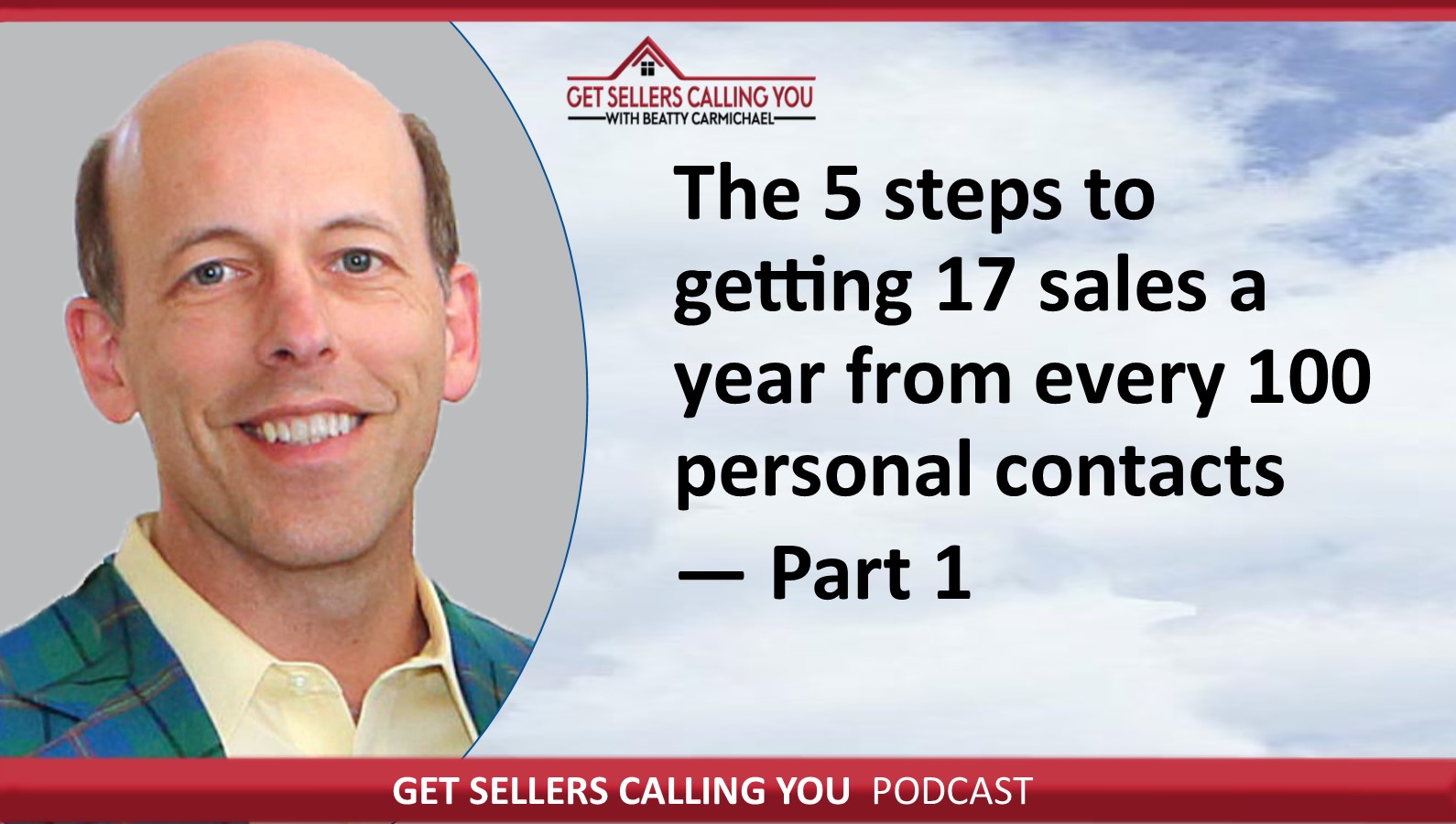
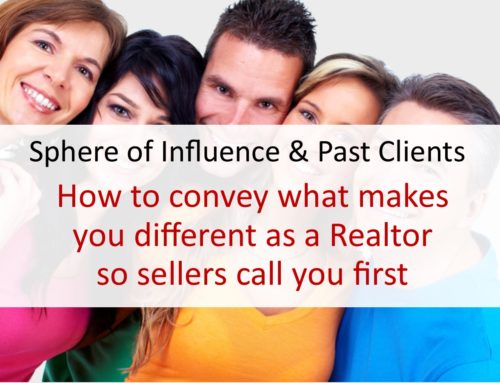
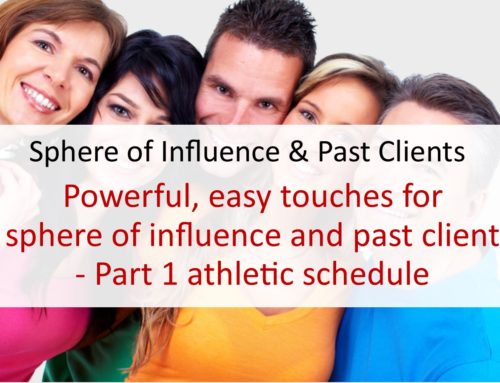
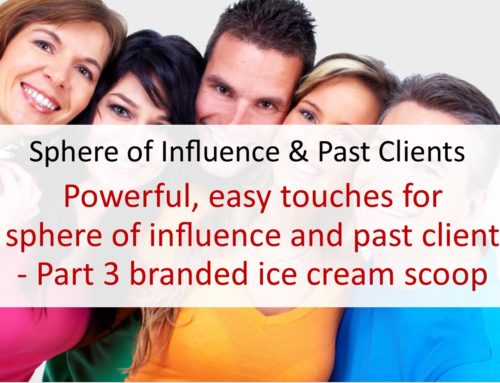
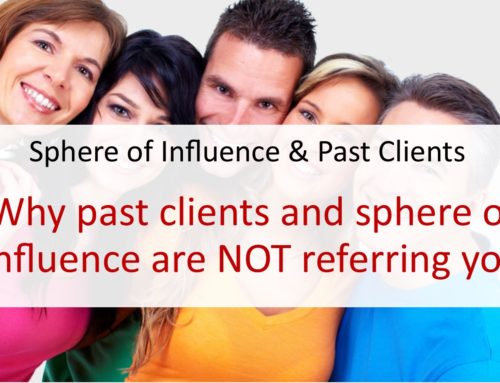
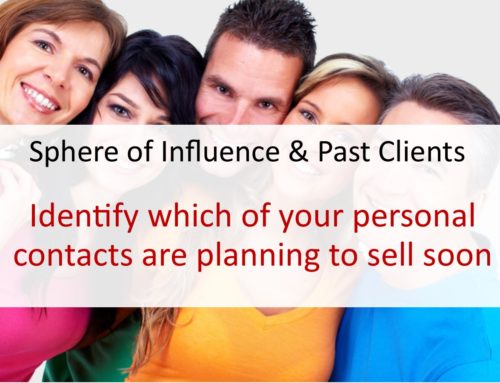

Leave A Comment